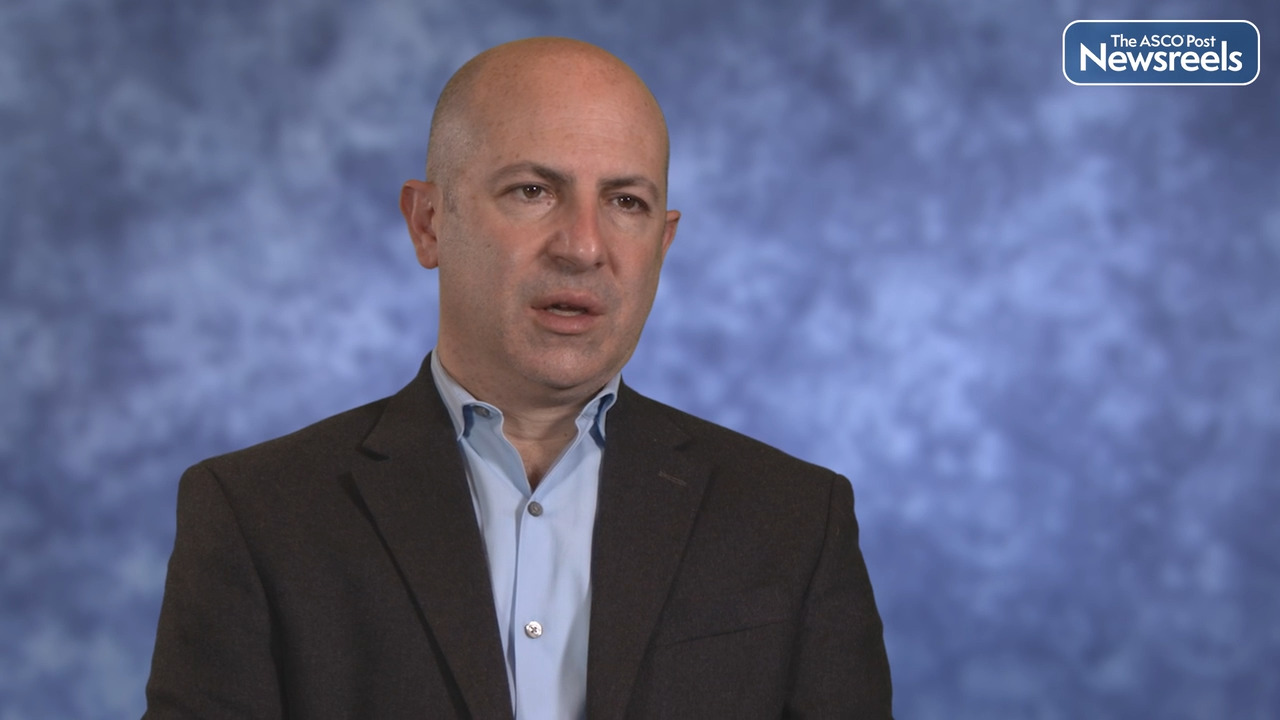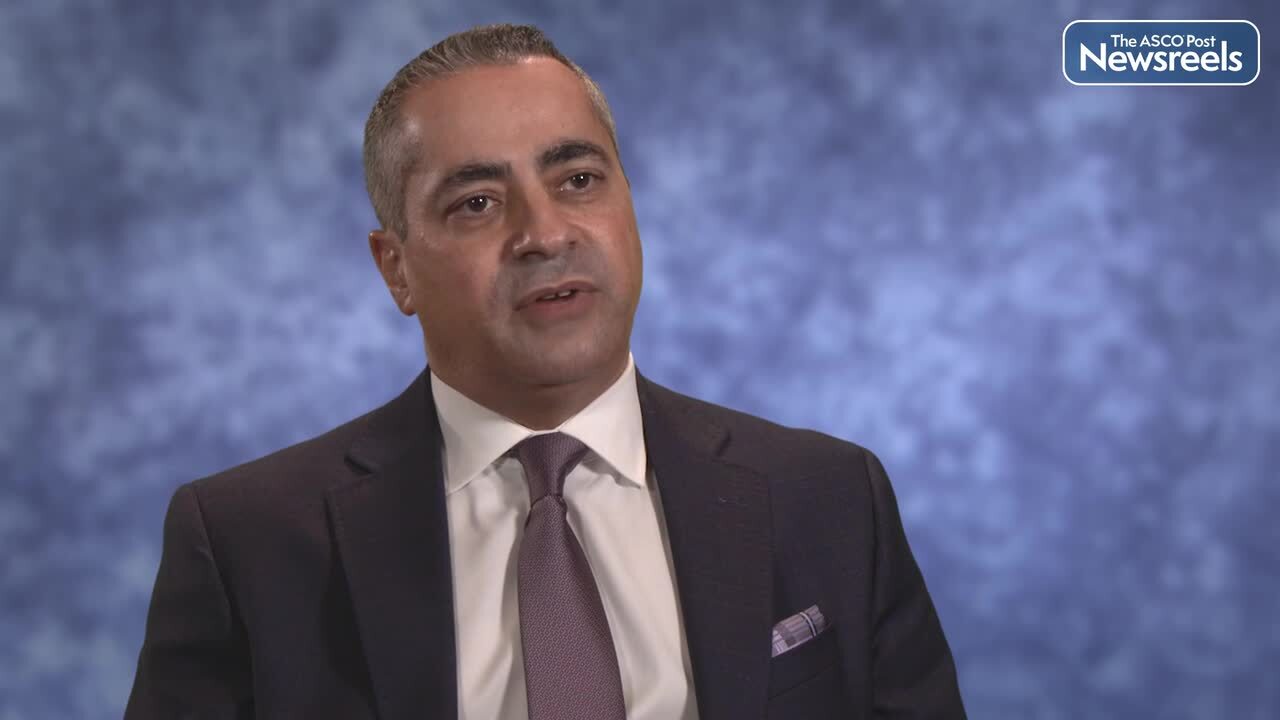Tanios S. Bekaii-Saab, MD, on Pancreatic and Other Tumors With KRAS G12C Mutation: Updated Data on Use of Adagrasib
2022 ASCO Gastrointestinal Cancers Symposium
Tanios S. Bekaii-Saab, MD, of Mayo Clinic, discusses new findings from the KRYSTAL-1 study, which suggested adagrasib monotherapy is well tolerated and demonstrates clinical activity in pretreated patients with unresectable or metastatic pancreatic cancer or other gastrointestinal tumors harboring a KRAS G12C mutation. Adagrasib is an inhibitor of the KRAS G12C mutation (Abstract 519).
The ASCO Post Staff
Romain Cohen, MD, PhD, of Sorbonne University and Saint-Antoine Hospital, discusses phase II results of the GERCOR NIPICOL study, which suggests nivolumab plus ipilimumab at a fixed duration of 1 year continued to show durable activity in patients with chemoresistant microsatellite instability–high/mismatch repair–deficient metastatic colorectal cancer after 3 years of follow-up. Dr. Cohen points out there is now some question as to whether all patients need 2 years of therapy (Abstract 13).
The ASCO Post Staff
Van K. Morris, MD, of The University of Texas MD Anderson Cancer Center, discusses phase I/II data suggesting that encorafenib plus cetuximab and nivolumab is safe and well tolerated for patients with microsatellite-stable BRAF V600E–mutated metastatic colorectal cancer (Abstract 12).
The ASCO Post Staff
Zev A. Wainberg, MD, of the University of California, Los Angeles, discusses an update, of 25 additional months, on phase III safety and efficacy results from the KEYNOTE-062 trial. This study compared pembrolizumab with or without chemotherapy vs chemotherapy alone for patients with PD-L1–positive advanced gastric or gastroesophageal junction adenocarcinoma (Abstract 243).
The ASCO Post Staff
Thierry André, MD, of Sorbonne University and Saint-Antoine Hospital, discusses phase II results from the GERCOR NEONIPIGA study, which suggests neoadjuvant therapy with nivolumab and ipilimumab may be associated with a high pathologic complete response rate in patients with localized microsatellite instability–high or mismatch repair–deficient esophagogastric adenocarcinoma. This study raises the question of whether surgery could be delayed or avoided for some patients (Abstract 244).
The ASCO Post Staff
Anthony B. El-Khoueiry, MD, of the University of Southern California, Norris Comprehensive Cancer Center, discusses two key phase III studies of first-line treatment in hepatocellular carcinoma: the LAUNCH trial, which explored lenvatinib combined with transarterial chemoembolization for advanced disease; and the HIMALAYA trial, which studied tremelimumab and durvalumab for unresectable disease. The latter trial may represent a new standard of care, according to Dr. El-Khoueiry.





